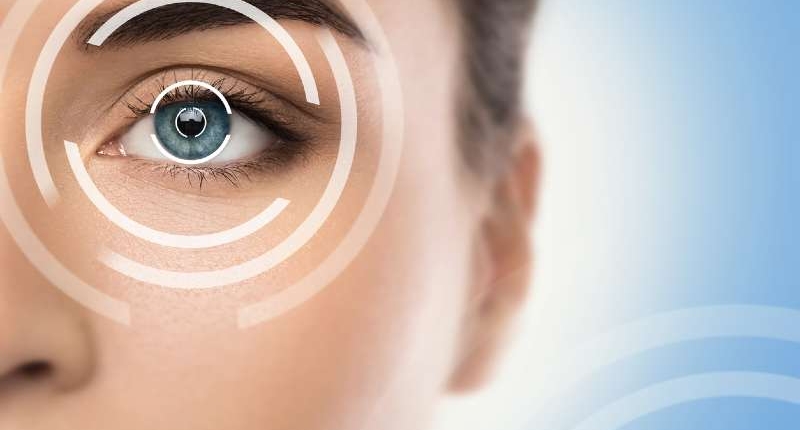Refractive Lens Exchange (RLE) vs. LASIK
Medically Reviewed by Dr. Anthony Nappi / Published March 31, 2023

Medically Reviewed by Dr. Anthony Nappi / Published March 31, 2023

Two of the most popular laser surgery options for vision are LASIK and refractive lens exchange (RLE). Both LASIK & RLE are refractive surgeries. So how are they different? And which type of refractive surgery is right for you?
We’ll answer these questions and more. Let’s start by defining what we mean by “LASIK” and “RLE.”
LASIK: Laser-Assisted In Situ Keratomileusis, known more commonly as LASIK, is a procedure to reshape the cornea to improve visual acuity. During LASIK, our doctor uses specialized lasers to lift a small section of the top layer of the cornea and adjust the shape of the underlying tissue. The top layer of tissue is replaced and heals on its own.
Refractive lens exchange (RLE) is another surgical option to correct vision. In RLE, your surgeon uses laser tools to make a small incision in the cornea, then places a corrective lens beneath the cornea. In RLE, your surgeon replaces a clouded lens with a clear lens. In corrective RLE surgery, the surgeon performs a clear lens exchange, and the lens implant corrects your vision.
RLE does not change the structure of your eye, so the procedure is reversible. The lens can be removed at a later time if needed.
Both LASIK and RLE improve visual acuity. Most people who receive LASIK or RLE vision correction surgery reach, at least, 20/40 vision following the procedure, with many people reporting 20/20 vision afterward. The surgery you choose depends on your needs and the refractive defects of your eyes.
It would help if you talked to your eye doctor to learn about your options. To help you understand the general differences between these two vision correction surgeries, here is a quick side-by-side comparison of LASIK and RLE.
Both LASIK and RLE procedures are performed in your doctor’s office. You will be awake during the procedure, but your doctor will put numbing drops on your eye so you won’t feel any pain.
There are slight differences in the procedures themselves. Many of the tools are the same, and there will be incisions in your cornea for each surgery. However, during LASIK, your doctor is reshaping your eye tissue while with RLE, your doctor is inserting a new lens into your eye.
Generally, LASIK procedures take about 15 minutes per eye. RLE procedures take 10 to 20 minutes per eye. With both, you will be able to go home that day, though you will need someone to drive you.
After any laser vision correction surgery, you will need to follow your doctor’s instructions. For a few days, you will need to wear a shield over your eyes while sleeping to avoid rubbing your eyes, and you will need antibiotic eye drops to prevent infection. You should plan to limit some activities, such as exercise, for a few days after your procedure.
After RLE surgery, you should plan to take it easy for about a week. You may notice soreness or itchiness in your eyes. You may be sensitive to light; wearing sunglasses will alleviate the discomfort. Some people experience swelling in the eye after surgery, which can lead to blurry vision. This typically resolves within a week.
You will start to notice improvements in your vision within 24 hours of surgery. Though most discomfort should disappear after a couple of days, complete healing can take four to six weeks.
The recovery from LASIK is similar to the recovery from RLE. Some people experience light sensitivity and prefer to wear sunglasses until it goes away. You may feel mild soreness or itchiness, and your eyes may look bloodshot. Some people notice haziness or halos around lights for a few days. These side effects go away within a week.
Many people notice improvements to their vision immediately after LASIK, with gradual improvement continuing for the next few months.
We understand that not every procedure works for every condition. Talk to your eye doctor about the best treatment for your vision problems. We offer a free LASIK self-evaluation to help you determine if you’re a candidate for one of these procedures.
If you need an eye doctor who can help you make smart decisions about your eye health, schedule a complementary consult with Barnet Dulaney Perkins Vision Correction and Cosmetic Surgery today to discuss your corrective options.

 How Much Does LASIK Eye Surgery Cost in 2023?
How Much Does LASIK Eye Surgery Cost in 2023?